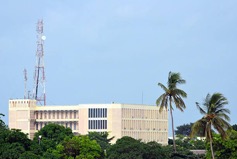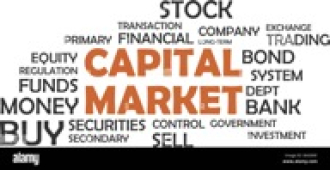
Under the present government authorities, the country has been given a pat on the back with a standard rating for prudent country policy and institutional assessment in recent years to spur economic growth.
“For the first time since 2017, The Gambia’s overall Country Policy and Institutional Assessment (CPIA) score has increased to 3.1 in 2022,” states the 2024 National Budget. “Measured by the World Bank, countries are rated on a scale of 1 (low) to 6 (high). The improvement in the Gambia’s CPIA score, reflecting improvements in the quality of the country’s policies and institutions owing to efforts being made to improve debt management and inclusive growth, include rural development, social protection, and investments in human capital and infrastructure.”
The budget also states that “The Government of The Gambia and Millennium Challenge Corporation (MCC) signed a US$25 million threshold program to support the country’s biggest constraint to economic growth – the unreliable and inadequate supply of electricity.”
Every year each MCC candidate country receives a scorecard assessing performance in three policy categories: Ruling Justly, Investing in People, and Encouraging Economic Freedom. According to the budget statement, “The Gambia has met performance standard of 16 out of the 20 MCC indicators that makes up the three policy categories.”
While this fair standing or pass mark of maintaining prudent policies, good governance and economic recovery is highly commendable, the people would want to see a lot more that would really transform the economy for the better. Indeed, a lot needs to be done to transform the economy as Professor Atif Amin Al Hussaini explains in his article: Gambia’s road map to economic empowerment (The Point: 9/2/2024). The professor outlines some feasible steps and solutions to transforming The Gambia’s economy. The road map, he says, hinges on fostering citizen-driven economic growth, through which nations “can break free from external control and chart their own course” towards a more just and prosperous future. However, he advises, the journey demands careful planning, inclusive approaches, and responsible resource management to ensure true and lasting economic empowerment and independence for all.

The economic road map, he states, involves investing in human capital, empowering women and youth, boosting the private sector, harnessing technology and innovation, strengthening governance and institutions, and maintaining regional and international cooperation.
“Remember, achieving economic empowerment is a continuous journey,” he notes, saying: “By prioritizing these steps and adapting them to The Gambia's specific context, the country can create a brighter future for all its citizens.”
Another senior public figure with wealth of knowledge and experience in the economic and financial landscape of The Gambia, Mr Mamour Jagne, has, in a recent local publication Soffia, underscored the importance of shifting from rain-fed agriculture to the irrigation of upland crops that can grow all year round.
Moreover, Mr Jagne states, a better leg to stand on in transforming the economy of The Gambia would be to integrate into international markets and having a stock exchange in the country.
“Manufacturers in The Gambia cannot benefit from the economies of scale, which will enable them to compete in the international market,” he explains. “A possible solution could be to encourage the Gambian and Senegambian enterprises to buy into each other’s equity. The Gambian investor would thereby merge/share ownership of a company in a bigger market. This option should be visible in agribusinesses, drinks, soap and other items. The importation of which would not be feasible for The Gambia. In this regard, the move by the Central Bank of The Gambia to introduce a stock exchange in The Gambia is very positive.”
These ideas and suggestions for economic transformation are food for thought for the current administration. A step towards that direction has already been taken when the Finance Minister four months ago launched (October 2023) the country’s first-ever Capital Market, with the Central Bank of The Gambia serving as its initial base.
Designed to accelerate and strengthen The Gambia’s economy, the capital market would boost domestic savings and increase the quantity and quality of investment in the country. It would also enhance the operations of the domestic financial system in general as funds for capital are raised by the banking system, insurance companies and other financial intermediaries.
It is a fact that a nascent capital market, especially in developing countries, may face teething problems, as it involves huge costs and sound financial structures and regulations to ensure it grows lucrative and prosperous.
In any case, it is better to follow the river and you would surely get to the sea. Thus, the capital market that has been launched by The Gambia may grow to a bigger and vital market tomorrow that would serve the economy of the country well.




